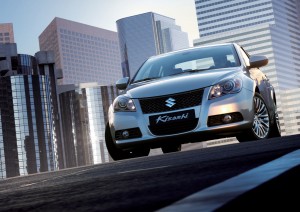
IPC president Nobuo Izumina told reporters Tuesday night that the company was “optimistic” about a growth this year, seeing a rising demand for trucks as the Philippine government aggressively pursues infrastructure projects.
According to Izumina, Isuzu expects to sell some 4,300 units of the all new D-Max this year, which will give the company a 20-percent share of the segment.
Last year, IPC announced that it would invest at least P60 million to “strengthen” the company’s production facility in Laguna, in preparation for the local assembly of the D-Max, starting December 2013.
Izumina added that apart from the continuing investments to boost efficiencies in the production facility, IPC is also investing this year to help the dealers and train their personnel.
Meanwhile, IPC executive vice president Takashi Tomita appealed for more incentives from the Philippine government, saying that these were necessary to protect the automotive industry and enable carmakers to become more competitive.
Although 90 percent of IPC’s vehicles are locally assembled, the local content would be much lower at around 35 percent, for instance, for the Crosswind model.
“The government must consider some measure, or incentives. Otherwise, the assemblers here will continue to use parts from other countries,” he added.
Tomita earlier said that the government should also reconsider plans for the automotive industry as it was moving in the “wrong” direction.
The IPC official had scored the conditions for the granting of incentives, which he had said were impossible to meet, such as the production of 40,000 units per model per year.
Tomita likewise stressed the higher cost of assembling vehicles here compared to other countries like Thailand, since most of the parts are still imported.
Without any new incentives, some of the remaining local automotive assemblers may consider halting operations to look for the “most profitable” country where they can operate.—Amy R. Remo